HiPure Circulating DNA Mini Kit, designed to efficiently purify short, cell-free DNA (cfDNA) molecules from human biological fluids:
- Target:
- Tumor-derived cfDNA fragments and mRNAs in blood
- Fetal nucleic acids in maternal blood
- Sample Compatibility:
- Human plasma
- Human serum
- Human urine
- Samples can be fresh or frozen (once only)
- Focus on Short DNA: The kit isolates short nucleic acids (<1000pb) commonly found in biofluids.
- Efficient Purification: The protocol allows for effective recovery of cfDNA from various biofluids.
- Ready for Downstream Use: Purified cfDNA is suitable for diverse applications, y compris:
- RAP and other amplification reactions
- Next-generation sequencing (NGS) analyses
Benefits:
- Optimized for Short cfDNA: Specifically designed to capture short DNA fragments relevant for biomarker discovery and liquid biopsies.
- Broad Sample Compatibility: Works effectively with various human biofluids, offering flexibility in sample selection.
- Streamlined Workflow: The miniaturized kit format allows for faster processing compared to larger kits.
This kit empowers researchers to study circulating DNA in various fields, including oncology, non-invasive prenatal testing (NIPT), and liquid biopsy applications.
Caractéristiques
| Caractéristiques | Caractéristiques |
| Fonctions principales | Isolation circulating DNA from 1ml plasma, sérum, fluides corporels |
| Applications | qPCR, analyse de copeaux liquides ou solides, hybridation et détection de SNP, etc.. |
| Méthode de purification | Mini spin column |
| Technologie de purification | Technologie de la silice |
| Méthode de processus | Manuel (centrifugation ou vide) |
| Échantillon type | Sérum, plasma et autres échantillons de fluides acellulaires |
| Montant de l'échantillon | 1ml |
| Volume d'élution | ≥30μl |
| Temps par course | ≤50 minutes |
| Volume de liquide transporté par colonne | 800µl |
| Rendement de liaison de la colonne | 100µg |
Principe
This product utilizes silica gel columns for a rapid and reliable Purification de l'ADN process.
Lysis and Digestion: The sample undergoes treatment with a lysate solution and protease. This breaks open cells and degrades proteins, releasing DNA into the solution.
Binding to Silica Membrane: The lysate containing the DNA is transferred to an adsorption plate or filtration column. The silica membrane in these tools selectively binds DNA molecules due to favorable interactions, while proteins and other impurities pass through.
Washing: Wash buffers are passed through the column, removing unbound proteins and cellular debris that didn’t adhere to the silica.
Elution: A low-salt buffer (typically 10 mM Tris, pH 8.0) is used to elute the purified DNA from the silica membrane. This disrupts the interaction between DNA and the silica, allowing the collection of purified DNA in a separate tube.
This method provides a valuable tool for researchers working in various fields that require purified DNA for analysis, such as PCR, Southern Blot, and next-generation sequencing.
Avantages
- Haut rendement – processus le plus optimal, ADN libre (>50pb) peut être obtenu dans la mesure maximale
- Haute concentration – faible volume d'élution, assurer une concentration élevée d’acide nucléique
- Haute pureté – méthode à faible liaison alcoolique, éliminant complètement la pollution par les inhibiteurs et les protéines
- Récupération élevée – DNA can be recovered at the level of PG by silica gel column purification
Contenu du kit
| Contenu | D318102 | D318103 |
| Temps de purification | 50 Préparations | 250 Préparations |
| Liste de contrôle d'accès tampon | 50 ml | 250 ml |
| Tampon ACB* | 60 ml | 300 ml |
| Tampon DCW1* | 22 ml | 88 ml |
| Tampon DCW2* | 10 ml | 50 ml |
| Protéinase K | 120 mg | 540 mg |
| Tampon de dissolution de protéase | 10 ml | 30 ml |
| ARN porteur | 110 µg | 310 µg |
| Eau sans nucléase | 10 ml | 30 ml |
| Mini-colonnes HiPure CFDNA | 50 | 250 |
| 2 Tubes de prélèvement ml | 100 | 500 |
Stockage et stabilité
Here’s a quick guide on storing your DNA extraction kit to ensure it functions at its best:
Ideal Storage:
- Store Proteinase K and Carrier RNA in the refrigerator (2-8°C) upon arrival for maximum effectiveness.
Acceptable Short-Term Storage:
- Proteinase K and Carrier RNA can be kept at room temperature (15-25°C) for up to 12 weeks without impacting their performance.
Storing Remaining Components:
- All other kit components should be stored dry at room temperature (15-25°C).
- They will remain stable for at least 18 mois dans ces conditions.
Important Notes:
- If storing the entire kit at 2-8°C, remember to redissolve buffers before use.
- Always ensure all buffers reach room temperature before using them for optimal results.
By following these storage recommendations, you can guarantee your DNA extraction kit is always ready for use and delivers the best possible results.
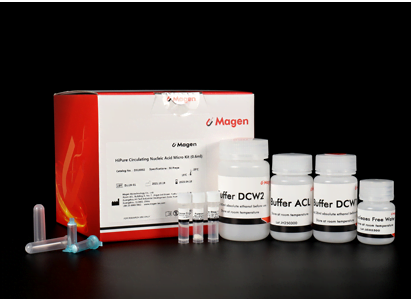
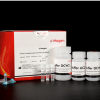
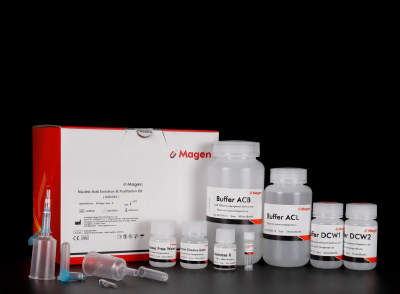
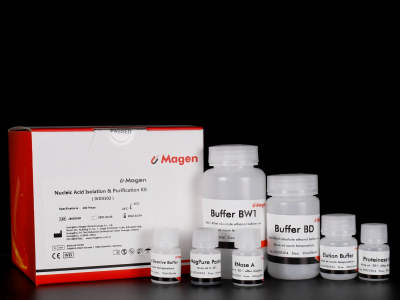
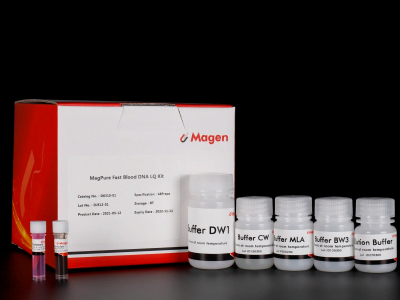
Commentaires
Il n'y a pas encore de critiques.